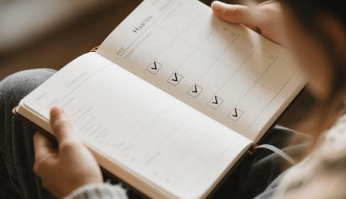The Power of Small Steps
When people talk about “changing your life,” they often picture big, dramatic moves. A new job. Moving to another city. Completely overhauling their diet. But real change doesn’t always look like that. In fact, it usually doesn’t. Small adjustments, kept up for a month, can shift the way you think, feel, and act far more than an all-or-nothing approach.
The beauty of small changes is that they’re less intimidating. You’re not asking yourself to become a different person overnight. You’re simply making tiny tweaks that fit into your current life. Over time, those tweaks pile up and begin to alter the bigger picture.

Start with Your Morning
Your mornings set the tone for the rest of your day, whether you notice it or not. The way you start may carry through into your mood, focus, and even your patience levels.
For example, swapping the habit of checking your phone the moment you wake up with something quieter—like stretching or sipping water—can be a surprisingly big shift. The first thing your brain consumes in the morning matters. A calm start often leads to a calmer day.
I tried this myself for two weeks, simply keeping my phone out of reach until after breakfast. At first, it felt unnatural, almost like I was missing out. By day ten, it felt like freedom. My mornings stopped feeling rushed and reactive.
Move Your Body—But Keep It Simple
People often overcomplicate exercise, thinking they need a gym membership or a strict routine. In reality, moving for just ten minutes a day can have a noticeable effect on your energy and mood.
It might be a walk around the block while listening to music you love. Maybe it’s a few push-ups before your shower. The point isn’t to train like an athlete; it’s to tell your body, “I care about you.”
Thirty days of light movement can quietly build a habit that lasts. And when exercise stops being a chore in your head, you’re more likely to keep doing it.

The Power of One Glass of Water
It sounds almost silly—can something that small make a difference? But dehydration can mess with your mood, your focus, and even your appetite.
One easy shift is to drink a glass of water right after waking up. Not coffee, not juice—water. It wakes up your body from the inside, and you start the day already ahead on hydration. It’s so simple that people underestimate its effect.
Declutter One Thing a Day
Trying to clean and organize everything at once can feel like punishment. But if you focus on one drawer, one shelf, or even one old email inbox a day, you’ll notice a strange thing: it becomes addictive.
There’s a mental lift that comes from clearing space. You start to feel lighter, like there’s more room to think. And it’s not just about physical stuff—mental clutter matters too. Letting go of a useless grudge or saying no to a draining obligation counts as decluttering as well.
Track One Habit
Sometimes, the problem isn’t what you’re doing, it’s that you’re not paying attention to it. Tracking a habit—whether it’s your sleep, spending, or sugar intake—forces you to notice patterns you’d otherwise ignore.
For thirty days, pick one thing you want to understand better. Maybe it’s how often you eat out, how many hours you sleep, or how much time you spend scrolling. Write it down daily. By the end of the month, you’ll likely spot a few habits worth keeping and a few worth cutting.“For a full step-by-step system on habit change, grab my ebook 5-Minute Mind Boost: Simple Daily Habits for Clarity and Calm.

Practice One Small Gratitude
Gratitude can feel like a cliché until you try it in small, honest doses. Not the over-the-top “I’m grateful for my perfect life” kind of thing, but noticing that the coffee tasted good today or that traffic was lighter than usual.
Taking thirty seconds before bed to write down one good thing each day can nudge your brain toward looking for the positive. It doesn’t erase bad days, but it does make the good moments easier to see.
Revisit Your Evenings
The way you end your day shapes your sleep and your mindset for tomorrow. Small evening changes can be as simple as dimming lights an hour before bed or swapping your last TV episode for a quiet ten minutes of reading.
If you’ve ever gone to bed feeling tense and woken up tired, you know the cycle. Even a tiny shift toward a calmer evening can break it.
Notice the Ripple
The most interesting part about making small changes is how one often sparks another. Start drinking more water and you might find yourself craving fewer sugary snacks. Walk in the mornings and suddenly your mood is better at work.
It’s not magic. It’s just the way habits connect. Thirty days may not turn you into a new person, but it can tilt the path you’re on. And sometimes, that tilt is all you need.


